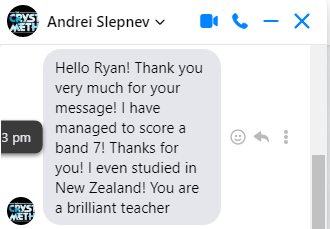Free sample lesson (audio and video):
Listen to the sample without the pauses:
Full version lesson:
Transcript
Describe a situation when you had to change your opinion about something or someone.
You should say:
What the original opinion was
Why you held that opinion
What made you change it
And explain what you learned from the change
One situation when I had to completely change my opinion was regarding a colleague of mine named Jeff. When I first started working at a previous job, I thought he was quite cold and unapproachable. He rarely smiled and didn’t really make an effort to chat with anyone on the team. Because of that, I assumed he was arrogant or simply not interested in building any sort of relationship with his colleagues.
I think I formed that impression partly because of how he carried himself—very serious, very focused. Also, some of my teammates seemed to hold a similar opinion, which probably influenced my thinking more than I realised at the time.
However, everything changed when Jeff and I were assigned to work together on a fairly demanding project. From the very beginning, Jeff was incredibly helpful and surprisingly down-to-earth once we started talking more. He had a dry sense of humour and a very calm way of handling pressure. I soon discovered that he was just naturally introverted and a bit reserved in group settings. In fact, he later mentioned that he’d always struggled with social anxiety, which explained a lot of his earlier behaviour.
That experience really made me reflect on how easily we can misjudge others. By the end of the project, we’d built a solid working relationship and even became friends outside of work.
This experience reminded me not to jump to conclusions and to always give people the benefit of the doubt.

